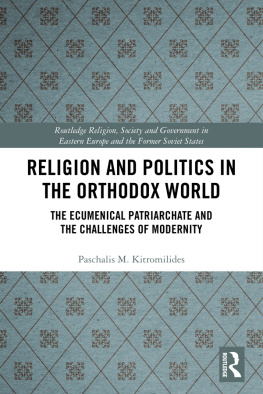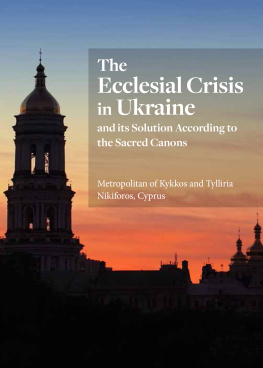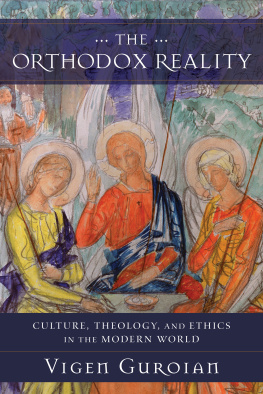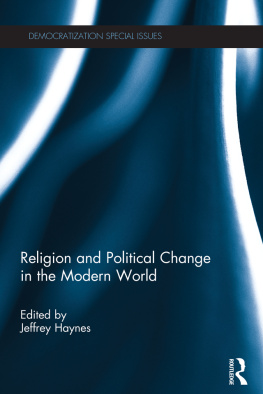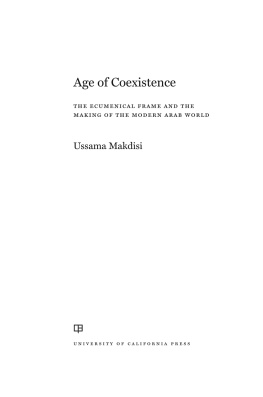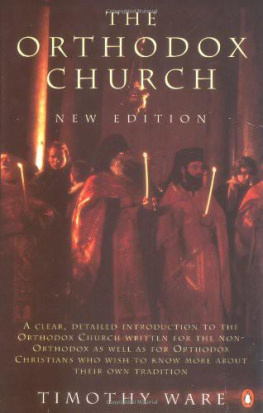Contents
Guide
Print Page Numbers

Religion and Politics in the Orthodox World
This book explores how the Ecumenical Patriarchate, the leading centre of spiritual authority in the Orthodox Church, based in Istanbul, coped with political developments from Ottoman times until the present. The book outlines how under the Ottomans, despite difficult circumstances, the Patriarchate managed to draw on its huge symbolic and moral power and organization to uphold the unity and catholicity of the Orthodox Church, how it struggled to do this during the subsequent age of nationalism when churches within new nation-states unilaterally claimed their autonomy reflecting local national demands, and how the church coped in the twentieth century with the rise of nationalist Turkey, the decline of Orthodoxy in Asia Minor and with the Cold War. The book concludes by assessing the position and prospects of the Patriarchate in the region and the world.
Paschalis M. Kitromilides is Professor of Political Science at the University of Athens, Greece.
Routledge Religion, Society and Government in Eastern Europe and the Former Soviet States
Series Editor
Lucian Leustean is Reader in Politics and International Relations at Aston University, Birmingham, United Kingdom
This Series seeks to publish high quality monographs and edited volumes on religion, society and government in Eastern Europe and the former Soviet States by focusing primarily on three main themes: the history of churches and religions (including, but not exclusively, Christianity, Islam, Judaism and Buddhism) in relation to governing structures, social groupings and political power; the impact of intellectual ideas on religious structures and values; and the role of religions and faith-based communities in fostering national identities from the nineteenth century until today.
The Series aims to advance the latest research on these themes by exploring the multi-facets of religious mobilization at local, national and supranational levels. It particularly welcomes studies which offer an interdisciplinary approach by drawing on the fields of history, politics, international relations, religious studies, theology, law, sociology and anthropology.
The Russian Orthodox Church and Human Rights
Kristina Stoeckl
The Russian Orthodox Church, 19171948
From Decline to Resurrection
Daniela Kalandjieva
Monasticism in Eastern Europe and the Former Soviet Republics
Edited by Ines A. Murzaku
The Catholic Church and Soviet Russia, 191739
Dennis J. Dunn
The Making of the New Martyrs of Russia
Soviet Repression in Orthodox Memory
Karin Hyldal Christensen
Religion and Politics in the Orthodox World
The Ecumenical Patriarchate and the Challenges of Modernity
Paschalis M. Kitromilides
Religion and Politics in the Orthodox World
The Ecumenical Patriarchate and the Challenges of Modernity
Paschalis M. Kitromilides

First published 2019
by Routledge
2 Park Square, Milton Park, Abingdon, Oxon OX14 4RN
and by Routledge
711 Third Avenue, New York, NY 10017
Routledge is an imprint of the Taylor & Francis Group, an informa business
2019 Paschalis M. Kitromilides
The right of Paschalis M. Kitromilides to be identified as author of this work has been asserted by him in accordance with sections 77 and 78 of the Copyright, Designs and Patents Act 1988.
All rights reserved. No part of this book may be reprinted or reproduced or utilised in any form or by any electronic, mechanical, or other means, now known or hereafter invented, including photocopying and recording, or in any information storage or retrieval system, without permission in writing from the publishers.
Trademark notice: Product or corporate names may be trademarks or registered trademarks, and are used only for identification and explanation without intent to infringe.
British Library Cataloguing-in-Publication Data
A catalogue record for this book is available from the British Library
Library of Congress Cataloging-in-Publication Data
A catalog record has been requested for this book
ISBN: 978-0-8153-9464-8 (hbk)
ISBN: 978-1-351-18543-1 (ebk)
Typeset in Times New Roman
by Wearset Ltd, Boldon, Tyne and Wear
Contents

Figure 0.1 The building complex of the Ecumenical Patriarchate in Istanbul with the patriarchal Cathedral of Saint George in the background.
Source: photo N. Manginas, 2018.
A fundamental problem in ecclesiology concerns the relation of the Church to the world and to history. The Church, in particular in Orthodox faith and theology, lives in the world, but it is not of the world (John, 15,18 and 17,6). A permanent and recurring problem in the life of the Church has been its adaptation to the occasional historical circumstances without losing its authentic identity either as a result of its absorption in current and transient social developments (secularization) or as a consequence of its alienation from the existential needs and preoccupations of people in a specific age (social isolation).
This problem has been particularly acute for the Orthodox Church at the period of the Enlightenment and during the subsequent period of the growth of the ideas and movements of nationalism, which emerged from the Enlightenment during the eighteenth and nineteenth centuries. The author of this book, a well-established authority in the historiography of the Enlightenment, focuses his attention on the changes endured by the Orthodox Church in the transition from Ottoman imperial rule to the age of nationalism. Under the Ottomans the Church, despite difficult historical circumstances but drawing on its huge symbolic and moral power and organization around the Ecumenical Patriarchate, managed to safeguard its unity and catholicity, cultivating a shared Orthodox identity and mentality among the populations of Southeastern Europe. During the subsequent age of nationalism, the Church found itself involved in an acute conflict between Christian ecumenicity and nationalism in the broader geographical region of its jurisdiction. During this latter period new nation-states in the region, giving pride of place to the idea of the nation over the unity and catholicity of the Orthodox Church, claimed unilaterally their autonomy from the Ecumenical Patriarchate transferring the old Byzantine idea of autocephaly, which had been totally unrelated to nationalism, to the demand of independent local/national Churches.
The great and serious ecclesiological stakes involved in the nationalization of the Orthodox Churches in the Balkan states became particularly clear in the case of the Bulgarian Church, which in its effort to establish an Exarchate for Bulgarian Orthodox in Constantinople itself provoked the condemnation of ethnophyletism by a major Synod convoked in Constantinople in 1872 and created a schism that lasted until 1945. The characterization of ethnophyletism as a heresy by that Synod made it obvious that, unfortunately, the Orthodox Church, even though temporarily, had given in to the temptation of History to subsume the catholicity, that pertains to its nature, to national expediencies, which led even to fratricidal conflicts between Orthodox peoples. The author is very acute in his observation that the idea of a national Church involves a serious antinomy because the Christian tradition comprises an ecumenical teaching, while nationalism is by definition a force of division on the basis of collective particularities.

